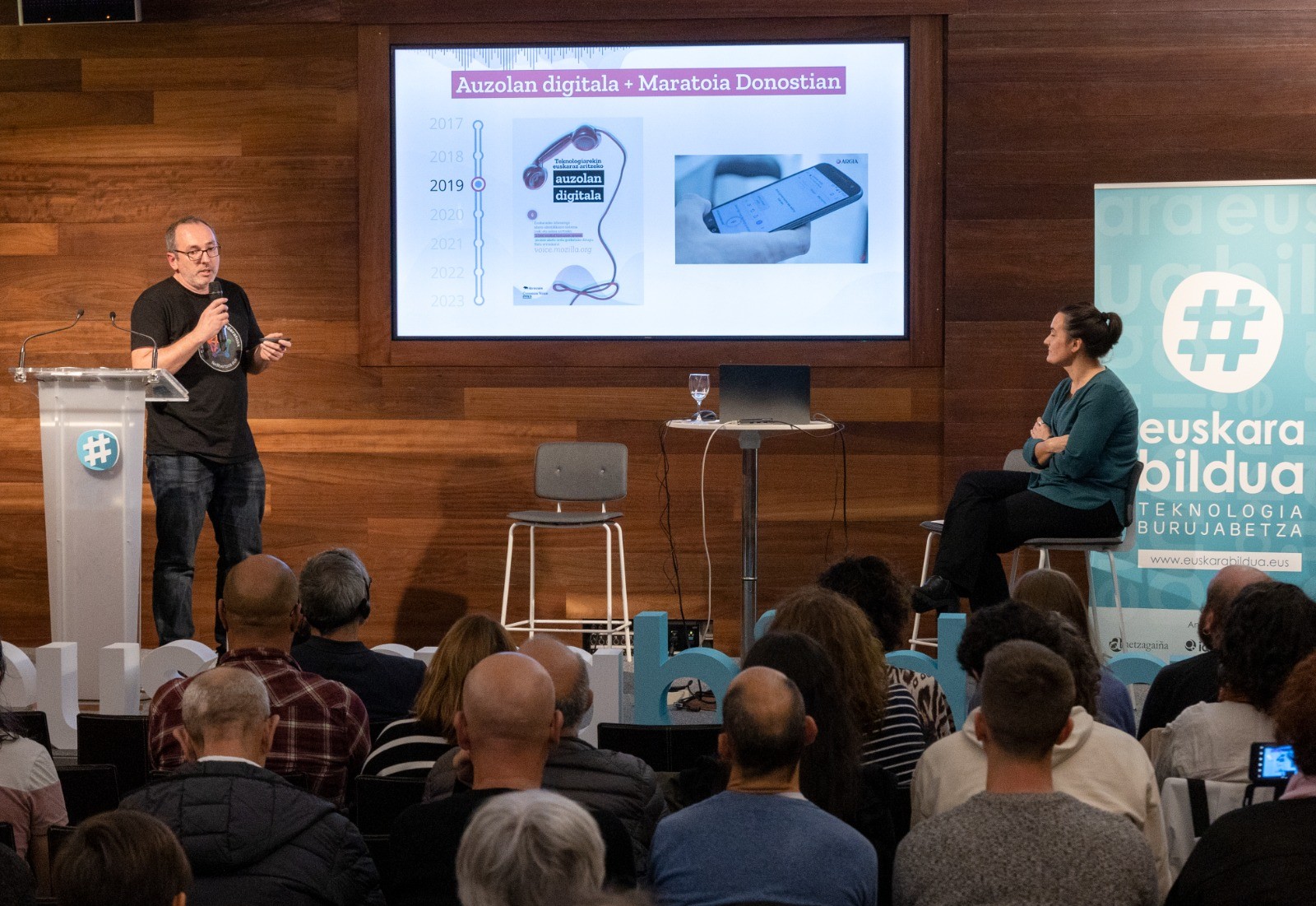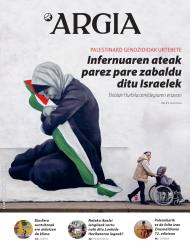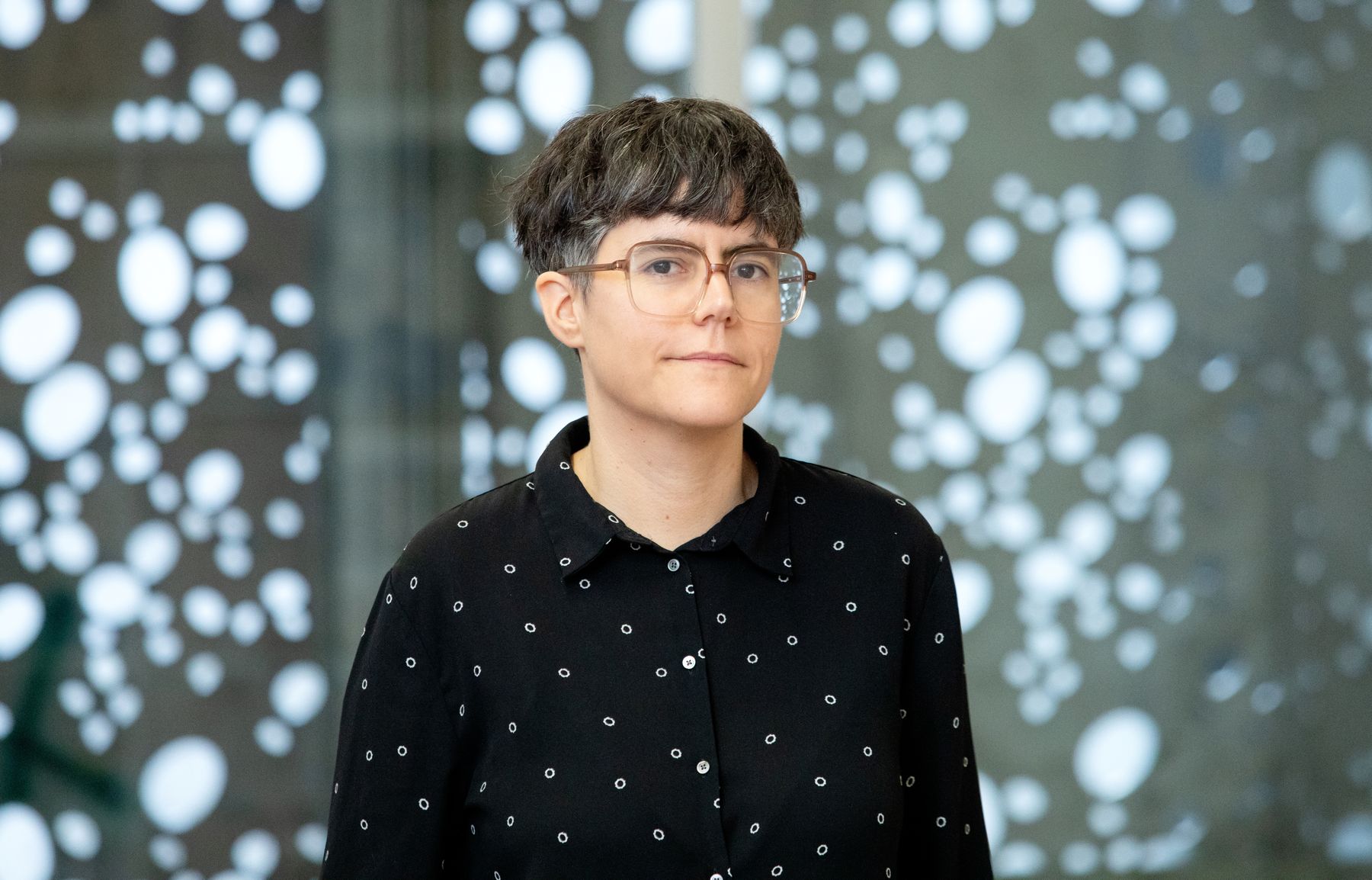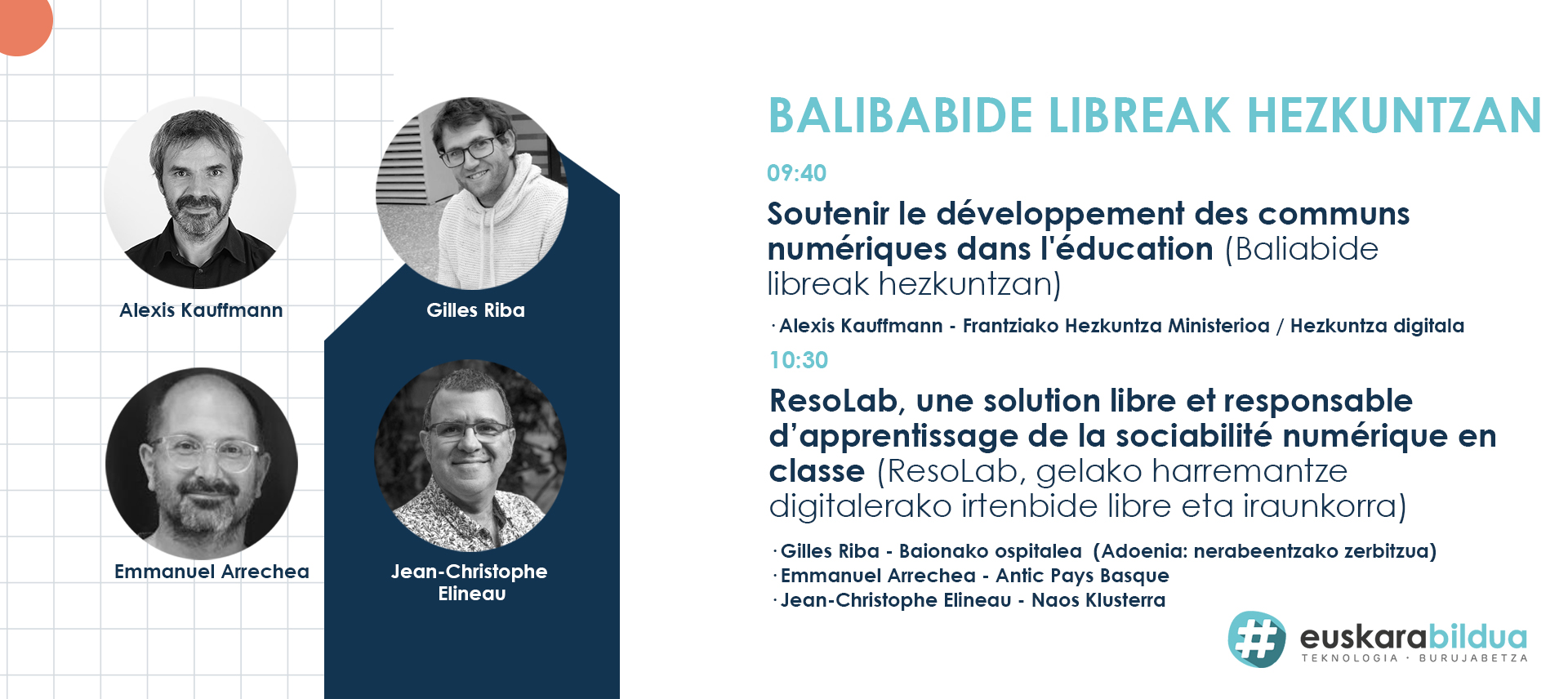More than artificial technology, people and communities at the front line
- The thirteenth edition of the Euskarabildua Day, organized by the communication company Iametza in collaboration with ARGIA and Ametzagaina, will have as its motto non-artificial technology. They will demand a "more ethical, more sustainable and more viable" use of technology, as well as "look at it with critical glasses". We talked to Iametza to learn more about the day.

Experts and members of the world of technology and communication will participate in a news conference aimed at bringing Euskera and technology closer together. It will be held on October 17 at the San Telmo Museum in San Sebastian.
Iametza wants to claim a “more ethical, sustainable and viable” use of technology. He stressed that artificial intelligence is "the time of the explosion" and sees "more important than ever" making decisions about the computer tools to be used and the digitization processes to be put in place "prioritizing people's needs and rights", as well as "looking with critical glasses" technology: “Euskarabildua wants to deepen and broaden his critical vision. We want to stand, to look around us, to see where we are going, and above the artificial, to value people and communities.”
Artificial
intelligence is based on algorithms, according to Iametza, “a formal description of the steps to be taken to solve a problem”. The communications company has explained that data is the raw material of algorithms and “the most precious asset”. He stressed that “we give a lot of data” to technological giants and that, “on the excuse of free service”, they use this data to “feed their technology”. According to Iametza, the raw materials, data and processing standards that enter the private enterprise system “condition the final result to 100%.”
"The cloud is under the control of the big companies and in the face of this, the management and care of local data are necessary to generate technology adapted to human needs, to value the Basque Country and to use technology for the benefit of the human being, and not the other way
around"
Iametza asks that it be public how and with what criteria the final result given through the algorithms is decided and says that it is “very important” to know how the algorithms are built, as this will determine or mark the type of world or society that will be built. “If those rules were public, surely the world would be a little more ethical.” The Euskarabildua day will be attended by attorney Manuela Battaglini, expert in data ethics and privacy, who will talk about the use of public algorithms. Counsel will explain the need for “democratic governance” and the context in which “power concentrations” are inscribed.
Iametza has stressed that calling for the rules of algorithms to be made public "seems impossible", but has claimed that artificial intelligence used in public administration should work in a public way: “We citizens have the right to know why and how the decisions of the administration have been made.” He stressed that algorithms aim to offer content according to each person’s tastes or desires, which means that society is “increasingly reduced” and “not more varied”.
The journalist and author of the book The Networks Are Our (The Networks Are Our), Marta Guerrero Franco, will propose in the Euskarabildua day to become “more cooperative and democratic networks”. The journalist claims that in the creation of the Internet it was “decentralized, plural and free” and will make proposals to “make the Internet the thing of all”.

Iametza has stated that the "cloud" that
collects data is under the control of big companies, which are the ones that help technological, economic and social development. Therefore, he considers that the management and care of local data are necessary to “create and develop technology adapted to the needs of the human being”, “value” the Basque country and “use technology for the benefit of the human being and not the other way around”. It sees a need to take ownership of technology and proposes ways to promote “sustainable” economic and social development such as the development and control of its own technology, the network of local associations and cooperatives or the exchange of knowledge: “If we control technical infrastructure and telecommunications, communities will have the opportunity to create, share and reuse technology tailored to the needs of their members. And we can only achieve that through free and sovereign software.”
In this edition, Iametza will give visibility to projects and projects of Euskal Herria as the collectives that are building local servers or the Common Voice community project, an open collaboration project to create a database free of voice recordings. Through the latter, they will explain "how to advance the technology of the voice through the voice".
This summer the Government of Navarre has made available to Microsoft the digitisation of the administration, arguing that it will involve “the improvement of business competitiveness, the generation of job opportunities and the promotion of digital talent”, and in 2022 the Basque Government signed a collaboration agreement with Google that allows the use of the multinational’s tools in public centers. Iametza has pointed out that the offerings of the multinationals allow “to facilitate tools and choose an easy path”, with “very attractive conditions”, but in Euskarabildua they will stress the importance of “reaching sovereignty”, although sometimes it is not the easiest path. “It is necessary to develop local digitalization plans and strategies in a public and decisive framework such as education, where priority is given to Euskera and quality criteria. It is necessary for a people to develop their capacity.”
Iametza stressed that large companies do not take Euskera into account, as they are working towards their commercial interests. They have added that the acquisition of ownership of technology can make artificial intelligence “ally” and “useful” to raise awareness of the culture and reality of Euskal Herria abroad.






















